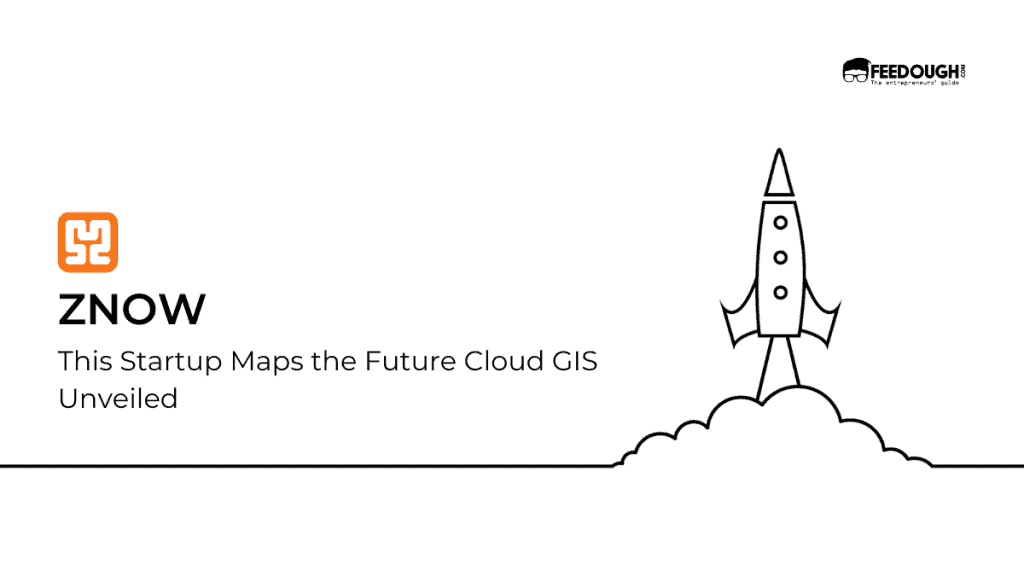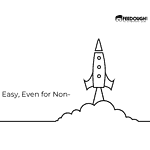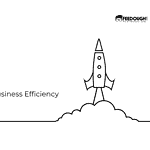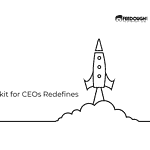Navigating the vast expanse of data around our planet is no simple feat. GIS analysts, the cartographers of the digital age, are tasked with the monumental job of making sense of this spatial information. Yet, while much of the world has embraced the cloud, these data maestros are often tethered to desktop applications, their potential restrained by the desktops they’re bound to.
Enter Znow, a beacon of innovation in a space where the cloud is a rare sight. Co-founded by Niclas Priess, a visionary who’s no stranger to pioneering data platforms, Znow is redefining the geospatial area. The team behind Znow spotted an uncharted opportunity: a cloud-based GIS platform that could liberate data and those who rely on it.
While giants like ESRI have long dominated this specialized industry, Znow is charting a different course. They’re not just moving GIS to the cloud; they’re empowering it with a powerful API that promises weekly releases of new features, a testament to their agility and commitment to innovation.
With a growing user base of GIS analysts eagerly adopting Znow’s platform, the startup’s trajectory is as expansive as the data it helps manage. For those 2 million-plus GIS analysts across the globe, Znow could be the key to unlocking a world of possibility, all from the convenience of the cloud.
We did an interview to find out just how Znow is turning this possibility into a thriving opportunity.
What is Znow?
Znow is transforming the way GIS analysts interact with geospatial data. These modern-day mapmakers, who have long been chained to desktop applications, are finding a new sense of freedom in Znow’s cloud-based GIS platform. The service caters to the needs of over two million professionals seeking to harness the power of the cloud to manage the vast amounts of spatial information that our world depends on.
Znow addresses the industry’s glaring gap: the absence of GIS in the cloud. The platform not only transitions GIS to a more accessible and collaborative space but also enhances its capabilities with a robust API. This approach distinguishes Znow from traditional solutions, offering GIS analysts a dynamic tool that evolves with weekly feature updates, ensuring they always have the latest advancements at their fingertips without the constraints of desktop-bound software.
What sets Znow apart is its fully cloud-based infrastructure and commitment to continuous innovation. While others in the field may rely on legacy systems, Znow’s users benefit from a platform that is as agile and expansive as the data they work with. This dedication to providing a cutting-edge, cloud-native GIS platform positions Znow as a fresh and vital resource in the geospatial industry.
Znow Founders
Niclas Priess is no ordinary entrepreneur; his vision for Znow springs from extensive experience in data platforms. As a co-founder, he brings to the table an idea and a legacy of transforming industries through innovative technology. His previous venture, Oceanbolt, navigated the complex currents of the shipping industry, setting a precedent for the kind of disruption Znow aims to bring to geospatial information systems.
The roots of this startup are deeply embedded in the founders’ firsthand struggle with the limitations of existing geospatial data systems. During their tenure at Oceanbolt, they encountered a significant challenge: no managed solution for their geospatial data needs. This void in the market sparked the inception of Znow, a testament to the founders’ drive to fill gaps and create value where it’s most needed.
In the early days, the team at Znow found themselves pitted against a giant—ESRI—a daunting prospect for any nascent company. Yet, they remained undeterred, their sights set on a future where cloud-based GIS platforms would become the norm. Their mission was clear: to transcend the confines of desktop applications and propel the industry into the cloud.
The genesis of Znow can be traced back to this very determination to innovate. The founders’ previous success with Oceanbolt had already demonstrated their ability to disrupt established industries. With Znow, they sought to apply their expertise to the realm of GIS, where they saw an opportunity to revolutionize how over two million analysts work with spatial data. Their journey from confronting a problem in their past venture to laying the foundation for Znow is a narrative of resilience and foresight, a story that continues to inspire both entrepreneurs and investors alike.
Interview with Niclas Priess, Co-founder of now
In an era where cloud computing is reshaping industries, I had the opportunity to sit down with Niclas Priess, co-founder of Znow, a startup that’s carving a new path in the geospatial realm. Here’s a glimpse into the mind behind the cloud-based GIS platform that’s redefining the landscape for over two million GIS analysts worldwide.
Q: Can you tell us a bit about your role at Znow?
A: As the co-founder of Znow, my primary role is to steer our startup’s vision and ensure that we’re continually meeting the needs of GIS analysts by providing a cloud-based GIS platform that’s both powerful and user-friendly.
Q: Could you share with us what Znow does in a nutshell?
A: Certainly, Znow is the system of record for geospatial data. We’re dedicated to bringing GIS into the cloud, providing a managed solution that empowers GIS analysts to work more efficiently and collaboratively.
Q: Who does Znow primarily serve, and what problem are you solving for them?
A: Our target audience is GIS Analysts currently limited by desktop applications. We’re solving the problem of GIS’s absence in the cloud by offering a cloud-based GIS platform that enhances their work.
Q: How does your company’s founding team’s background support Znow’s mission?
A: We are second-time founders with a history of building successful data platforms, like Oceanbolt,, for the shipping industry. This experience is invaluable in understanding data needs and creating innovative solutions like Znow.
Q: What inspired the leap into the geospatial industry?
A: The inspiration came from our own need for a managed geospatial data solution during our time at Oceanbolt. We recognized the industry’s gap and were driven to fill it with Znow.
Q: Can you describe the early challenges Znow faced?
A: The geospatial industry is dominated by established players like ESRI, which was a significant hurdle. However, we saw this as an opportunity to innovate and provide a cloud-native alternative.
Q: How does Znow differentiate itself from competitors?
A: We stand out by being fully cloud-based and offering a robust API, which allows us to rapidly release new features and adapt to our users’ evolving needs.
Q: Has Znow received any external funding?
A: No, we have not received external funding as of now.
Q: What are Znow’s future plans?
A: Our focus is on continuous improvement; we’re committed to releasing new features every week to ensure that our platform remains at the forefront of the GIS industry.
Q: Could you share some insights into Znow’s current revenue and customer base?
A: We’re currently making under USD 100k per month and serve less than 100 customers, but as a new startup, we’re seeing promising growth and are excited about the future.
Q: Lastly, what advice would you offer to aspiring entrepreneurs?
A: My advice is to think carefully before pursuing Venture Capital. It’s a path that comes with its own set of challenges and considerations.
With these insights from Niclas Priess, it’s clear that Znow is not just another startup; it’s a visionary company set to change the game for GIS analysts by harnessing the power of the cloud. Keep an eye on this space, as Znow is on a trajectory to redefine geospatial data management.
Feedough’s Take on Znow
Znow’s entry into the geospatial sector is a breath of fresh air. It offers a cloud-based solution where traditional desktop-bound systems have dominated. Their commitment to weekly feature rollouts signals a dedication to continuous improvement that could keep them ahead of the curve. For GIS analysts, this means an ever-evolving toolkit that matches the pace of a rapidly changing digital landscape.
Looking ahead, Znow’s challenge will be to scale sustainably while maintaining its agility. As it navigates the competitive waters, its cloud-native approach could disrupt the status quo, offering analysts unprecedented flexibility and collaboration potential.
While still in its early stages, Znow’s promising growth trajectory suggests that we can expect significant contributions to geospatial data management. Their focus on innovation and user-centric design positions them as a startup to watch in the quest for cloud-based GIS solutions.
A startup consultant, digital marketer, traveller, and philomath. Aashish has worked with over 20 startups and successfully helped them ideate, raise money, and succeed. When not working, he can be found hiking, camping, and stargazing.









